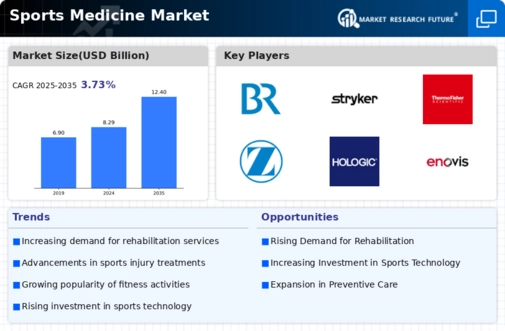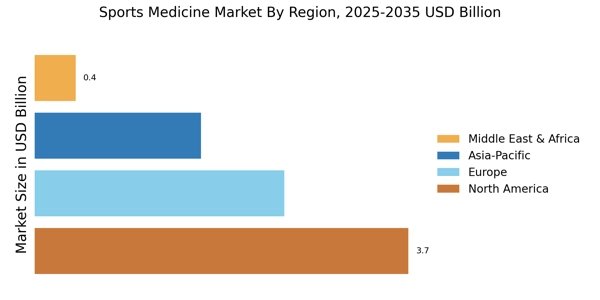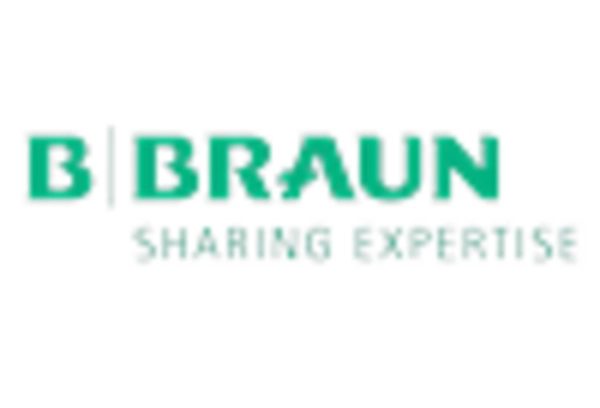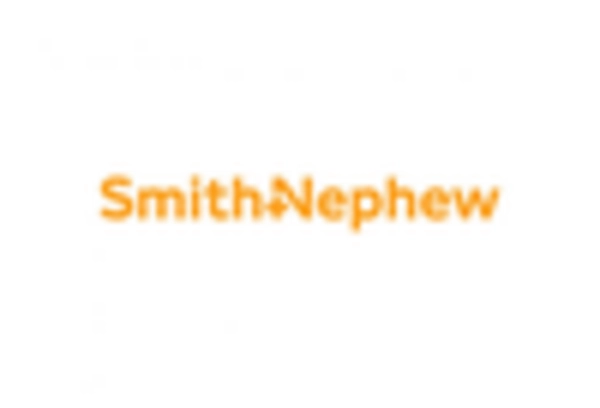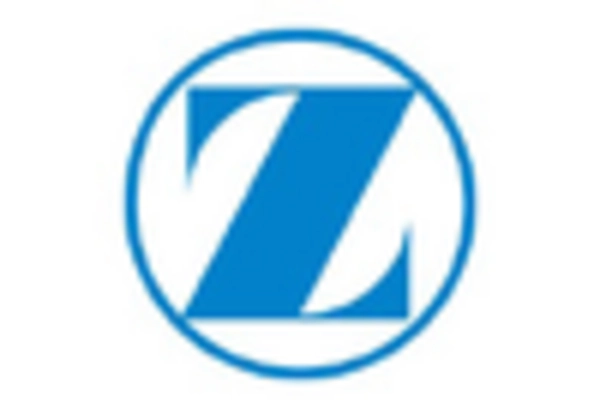Focus on Mental Health in Sports
The increasing recognition of mental health's role in athletic performance is becoming a pivotal driver for the Sports Medicine Market. Athletes are now more aware of the psychological challenges associated with competitive sports, leading to a demand for mental health support services. Research indicates that nearly 30% of athletes experience mental health issues, highlighting the need for comprehensive care that addresses both physical and psychological well-being. As sports organizations and healthcare providers prioritize mental health initiatives, the Sports Medicine Market is likely to expand its offerings to include psychological assessments and interventions. This holistic approach to athlete care not only enhances performance but also promotes overall well-being, suggesting a promising future for the integration of mental health services within the Sports Medicine Market.
Increased Participation in Sports
The rising trend of sports participation among various age groups appears to be a primary driver for the Sports Medicine Market. As more individuals engage in physical activities, the demand for preventive and rehabilitative care intensifies. According to recent data, approximately 60% of adults participate in some form of sports or physical activity, leading to a heightened need for specialized medical services. This surge in participation not only fosters a greater awareness of sports-related injuries but also emphasizes the importance of injury prevention strategies. Consequently, healthcare providers are increasingly focusing on developing tailored programs to address the unique needs of athletes and active individuals. This shift is likely to propel the Sports Medicine Market forward, as stakeholders seek innovative solutions to enhance performance and minimize injury risks.
Growing Awareness of Sports Injuries
The increasing awareness surrounding sports injuries and their long-term implications is driving the Sports Medicine Market. Educational campaigns and media coverage have heightened public consciousness about the risks associated with sports participation. This awareness has led to a greater demand for specialized medical services, including injury prevention programs and rehabilitation therapies. Recent statistics indicate that sports injuries account for nearly 20% of all injuries treated in emergency departments, underscoring the need for effective management strategies. As athletes and recreational participants become more informed about the potential consequences of injuries, they are more likely to seek professional guidance. This trend is expected to bolster the Sports Medicine Market, as healthcare providers adapt their offerings to meet the evolving needs of patients.
Technological Advancements in Treatment
Technological innovations are transforming the landscape of the Sports Medicine Market. The integration of advanced diagnostic tools, such as MRI and ultrasound imaging, has significantly improved the accuracy of injury assessments. Furthermore, the emergence of wearable technology enables real-time monitoring of athletes' performance and health metrics, facilitating timely interventions. Data suggests that the market for sports-related wearable devices is projected to grow at a compound annual growth rate of over 20% in the coming years. These advancements not only enhance treatment efficacy but also empower athletes to make informed decisions regarding their health. As technology continues to evolve, the Sports Medicine Market is likely to witness an influx of novel therapies and rehabilitation techniques, ultimately improving patient outcomes and satisfaction.
Rise of Sports Nutrition and Supplements
The growing emphasis on sports nutrition and dietary supplements is emerging as a significant driver for the Sports Medicine Market. Athletes and fitness enthusiasts are increasingly recognizing the role of nutrition in enhancing performance and recovery. This trend has led to a surge in demand for specialized nutritional products tailored to the needs of active individuals. Market data indicates that the sports nutrition segment is projected to reach a valuation of over 30 billion dollars by 2026. As consumers become more health-conscious, they are seeking evidence-based solutions to optimize their training regimens. Consequently, healthcare professionals are integrating nutritional counseling into their practice, further expanding the scope of the Sports Medicine Market. This convergence of nutrition and sports medicine is likely to foster innovative approaches to athlete care and performance enhancement.


